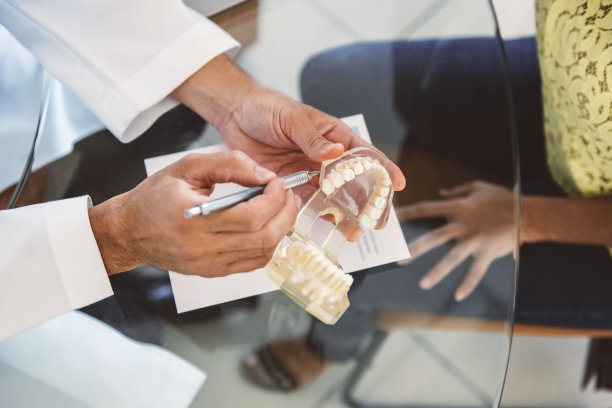Summary: Dental implants have revolutionized the field of dentistry, providing unparalleled benefits in both oral health and aesthetic outcomes. This article delves into the significant advancements in dental implant technology, focusing on their positive impact on oral health, their ability to enhance aesthetic appeal, the innovations shaping their development, and the long-term benefits they offer. By understanding these four crucial aspects, patients can better appreciate the transformative power of dental implants in achieving both functional and aesthetic dental restoration.
1. Benefits for Oral Health Enhancement

Dental implants are known for their remarkable contributions to oral health. One of the most significant advantages is their ability to prevent bone loss. When a tooth is lost, the jawbone can deteriorate over time due to lack of stimulation. By placing an implant in the jaw, it mimics the root of a natural tooth, facilitating bone growth and maintaining jaw integrity.
Additionally, dental implants support proper alignment of neighboring teeth. When there is a gap from a missing tooth, adjacent teeth can shift, leading to malocclusion or other dental issues. Implants fill the void, ensuring teeth remain in their designated positions, promoting better oral alignment and function.
Another oral health benefit is the ease of maintenance that dental implants provide. Unlike removable dentures, which can require complicated cleaning regimens, dental implants can be cared for with regular brushing and flossing, making oral hygiene simpler and more effective.
2. Aesthetic Improvements and Confidence Boost
Aesthetically, dental implants are designed to look and function like natural teeth. Their high-quality materials can be color-matched to existing teeth, making them virtually indistinguishable from a patients smile. This seamless integration significantly enhances the overall appearance of an individual’s smile.
Moreover, dental implants help restore facial structure that can be lost due to missing teeth. This restoration can prevent the sunken appearance that often accompanies tooth loss, helping individuals retain their youthful look and boosting overall confidence.
The psychological impact of dental implants should not be underestimated. Patients often experience increased self-esteem and improved social interactions due to their enhanced appearance and functionality. These benefits lead to a more active social life, as individuals feel more comfortable smiling and engaging with others.
3. Innovations Shaping Dental Implant Technology
The field of dental implants is continuously evolving, driven by technological advancements. One key innovation is the development of 3D imaging and computer-aided design, which enhances the precision of implant placement. This technology allows for meticulous planning and a custom-fit solution tailored to each patients unique dental anatomy.
Another significant innovation is the creation of biocompatible materials that promote faster healing and integration with the jawbone. The development of titanium and zirconia implants offers patients options that reduce the risk of rejection and provide long-lasting results.
Additionally, advancements in implant surface technology have improved osseointegration, the process by which the implant fuses with bone. Surface textures and coatings are designed to enhance the bonding process, leading to greater stability and success rates for implants.
4. Long-Term Benefits of Dental Implants
The long-term benefits of dental implants are compelling. With proper care, dental implants can last for decades, making them a cost-effective solution in the long run. Patients often find that while the initial investment may be higher than other options such as dentures, the durability and stability of implants justify the expense.
Furthermore, the physical advantages of dental implants extend beyond just aesthetics. Improved chewing ability means that patients can enjoy a wider variety of foods without restrictions, contributing to better nutrition and overall health.
Lastly, the maintenance of dental implants contributes to fewer dental visits in the long run. Patients benefit from reduced chances of tooth decay and gum disease compared to other restorative options, leading to overall lower healthcare costs associated with managing oral health.
Summary:
In conclusion, dental implants represent a groundbreaking solution that enhances oral health and aesthetics, supported by ongoing innovations in dental technology. Their ability to prevent bone loss, improve alignment, and enhance both function and beauty makes them an ideal choice for tooth replacement. With the long-lasting benefits they provide, including improved nutrition and reduced dental visits, it is clear that implants are not just a temporary fix but a substantial investment in ones overall health and smile.
This article is compiled by Vickong Dental and the content is for reference only.
Vickong Dental
Vickong Dental is a large medical group established in Hong Kong in 2008 by professors from well-known medical universities in Guangdong and Hong Kong, as well as medical doctors from key national '985' universities (including Master's supervisors and senior professors). The chain of branches brings together expert dentists with PhDs and Master's degrees from Hong Kong and Mainland China, committed to providing high-quality dental treatment.
"Vickong Dental Practices the University Motto of 'Healing and Serving Society,' with a Stable Operation for Sixteen Years. It Has Been honored with Hong Kong Enterprise Leaders's Choice,' and is a Global Trusted Implant Center for the Nobel Implant System. Recommended by Hong Kong Metro Broadcast and Guangdong Television, it Serves Customers from Over Thirty Countries and Regions, Gaining the Trust and Favor of Citizens from the Guangdong-Hong Kong-Macau Greater Bay Area and Surrounding Cities.

Thousands of customers' unanimous praise
The most recognized and highly recommended dental service by customers in the Guangdong-Hong Kong-Macau Greater Bay Area
We Ensure You Receive Detailed Care and Attention Here
Hong Kong standards, Shenzhen prices, Your Trusted English-speaking dentists

Vickong Dental Medical-Grade Instrument Disinfection Process
Vickong Dental Medical-Grade Instrument Disinfection Process

Vickong Dental Chain: A Warm and Comfortable Environment for Treatment






Appointment Hours

Q&A
Why choose Vickong Dental?
Vickong Dental practices the university motto 「Medicine to Benefit Society」, with each branch bringing together highly qualified dentists with doctoral and master’s degrees from Hong Kong and the Mainland, and has maintained seventeen years of steady operation。Recipient of 「2024 Hong Kong Enterprise Leaders Brand」, 「2025 Hong Kong Enterprise Leaders Brand」, a Nobel Biocare Global Trusted Implant Center, and a brand recommended by Metro Radio Hong Kong and Guangdong TV。
To date, we have served customers from more than thirty countries and regions,earning exceptionally high word-of-mouth recognition and trusted recommendations from residents across the Guangdong-Hong Kong-Macao Greater Bay Area and surrounding cities
We have eight major branches in Zhuhai、Shenzhen,and a consultation and service assurance center in Hong Kong,so you can book a free consultation at any time for any questions,which is very reassuring.
If I do not accept the quotation after the CT scan, will I be charged??
No! As long as the actual treatment has not started, you will not be charged any fees.
Will there be any additional charges during the treatment process?
No, there won’t be any additional charges. Before treatment begins, we will clearly explain the treatment plan and its corresponding fees. Only after the patient agrees and signs the consent form will we proceed with the dental service.
Can I pay in Hong Kong dollars?
Yes. Vickong Dental accepts payment in Hong Kong dollars. The amount will be converted based on the exchange rate of the day, and the applicable rate will be clearly communicated to you in advance.
Can I reschedule my appointment at any time?
Yes. Please contact us via **WeChat** or **WhatsApp** as early as possible, providing your original appointment time and details, along with your preferred new date and time slot for rescheduling.













